All Formats & Editions
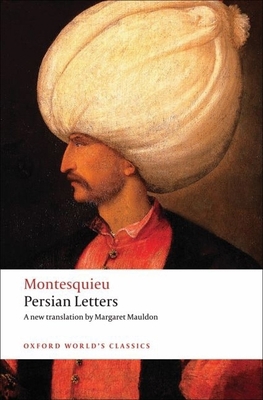
Persian Letters
Persian Letters is a classic of European literature by Baron de Montesquieu, the brilliant thinker who had a huge influence on the Enlightenment. Through the astute observations of his two fictional Persian travelers in Europe--Usbek and Rica--Montesquieu asks fundamental questions...
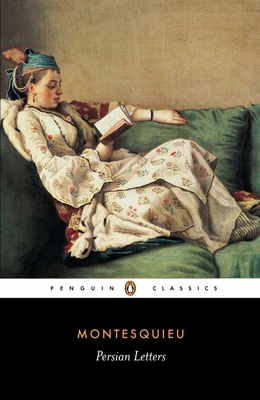
The Persian Letters
This richly evocative novel-in-letters tells the story of two Persian noblemen who have left their country - the modern Iran - to journey to Europe in search of wisdom. As they travel, they write home to wives and eunuchs in the harem and to friends in France and elsewhere. Their...
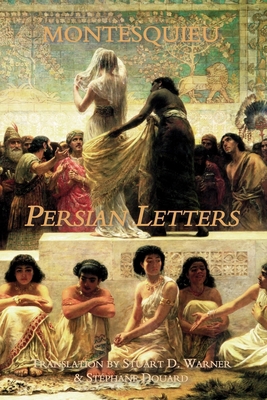
Persian Letters Persian Letters
This translation of Montesquieu's unsurpassed epistolary novel, the first to appear in over thirty years, is completely new and aims at being as literal as possible, including pulling no punches with the erotic elements.
This means that the translators have attempted to...
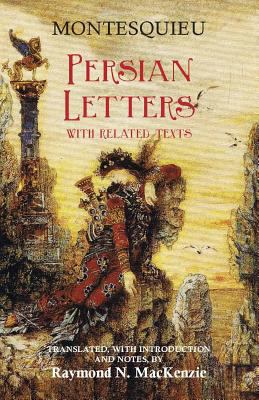
Persian Letters
Based on the 1758 edition, this translation strives for fidelity and retains Montesquieu's paragraphing. George R. Healy's Introduction discusses The Persian Letters as a kind of overture to the Enlightenment, a work of remarkable diversity designed more to explore a problem...
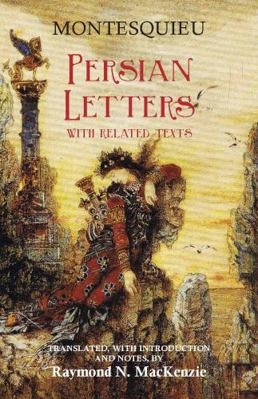
Persian Letters: With Related Texts
![Lettres Persanes [French] 2070429342 Book Cover](https://m.media-amazon.com/images/I/51yLEjuP7qL._SL500_.jpg)
Lettres Persanes [French]
![Lettres persanes/Persian Letters (French-Englis... [French] 1909669288 Book Cover](https://i.thriftbooks.com/api/imagehandler/l/20CAD8A9482737E57763B105B9C614FFC0044065.jpeg)
Lettres persanes/Persian Letters (French-Englis... [French]
Lettres persanes (Persian Letters) is a literary work by Charles de Secondat, baron de Montesquieu, recounting the experiences of two Persian noblemen, Usbek and Rica, who are traveling through France.In 1711 Usbek leaves his seraglio in Isfahan to take the long journey to France,...
![Lettres Persanes: Montesquieu (French Edition) [French] 1082137413 Book Cover](https://m.media-amazon.com/images/I/51nquMndu9L._SL500_.jpg)
Lettres Persanes: Montesquieu (French Edition) [French]
![Lettres persanes [French] 2081386674 Book Cover](https://i.thriftbooks.com/api/imagehandler/l/89BCE71C123B9C04E3ABEF546E9B06FAC35022FE.jpeg)
Lettres persanes [French]
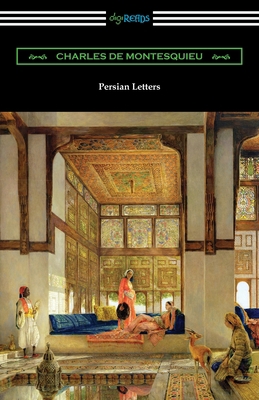
Persian Letters
Immensely popular throughout France and Europe upon its first publication in 1721, "Persian Letters" exemplifies the spirit of eighteenth-century libertinism and Enlightenment. Written by Charles de Montesquieu, this epistolary novel is told through a collection of letters...

Lettres Persanes (Classiques Garnier)
![Lettres Persanes [French] 2253082228 Book Cover](https://i.thriftbooks.com/api/imagehandler/l/DA52B8CCC071569961F3A287ABC6047D49AD34E0.jpeg)
Lettres Persanes [French]
![Lettres persanes [French] 2080708449 Book Cover](https://m.media-amazon.com/images/I/51fx-vCRqGL._SL500_.jpg)
Lettres persanes [French]
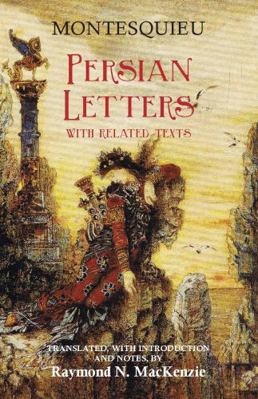

![Lettres persanes - Classiques et Patrimoine [French] 2210760976 Book Cover](https://m.media-amazon.com/images/I/41TfNsc-zIL._SL500_.jpg)
Lettres persanes - Classiques et Patrimoine [French]
![Lettres Persanes [French] 2035859182 Book Cover](https://m.media-amazon.com/images/I/61hnYROWrQL._SL500_.jpg)
Lettres Persanes [French]
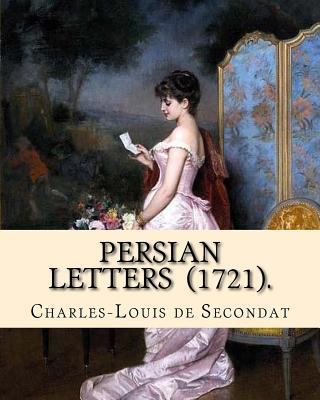
Persian Letters (1721). By: Montesquieu, transl...
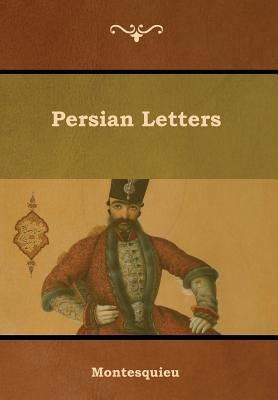
Persian Letters
Charles-Louis de Secondat, Baron de La Br de et de Montesquieu (18 January 1689 - 10 February 1755), generally referred to as simply Montesquieu, was a French judge, man of letters, and political philosopher. He is famous for his articulation of the theory of separation...
![Lettres Persanes [French] 2070364755 Book Cover](https://image-plz.thriftbooks.com/l/EA1A9FF4B6ED417BBFAFACF5E1285DAA.png)
Lettres Persanes [French]
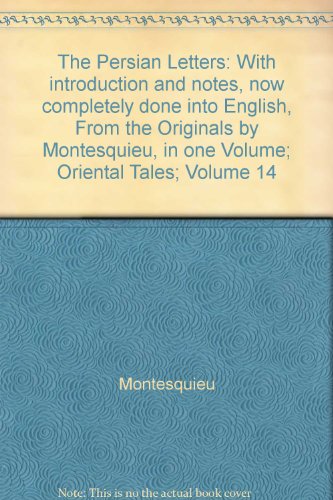
The Persian Letters: With introduction and note...
![OEuvres complètes de Montesquieu 1: Lettres per... [French] 0729408213 Book Cover](https://i.thriftbooks.com/api/imagehandler/l/A4A05043C3C34A55BA99EDDF711EBB953BE3D2D6.jpeg)
OEuvres complètes de Montesquieu 1: Lettres per... [French]
Part of Oeuvres Completes de Montesquieu
.
![Montesquieu. Lettres persanes [French] 2218063778 Book Cover](https://m.media-amazon.com/images/I/51yvdYc4XdL._SL500_.jpg)
Montesquieu. Lettres persanes [French]
![Lettres Persanes [French] 2266030825 Book Cover](https://m.media-amazon.com/images/I/51Trd3KSi-L._SL500_.jpg)
Lettres Persanes [French]
![Lettres persanes [French] 208149485X Book Cover](https://m.media-amazon.com/images/I/614IyuPtxCL._SL500_.jpg)



